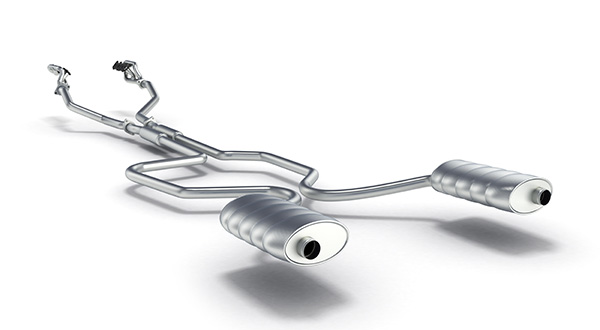
The exhaust system might not be the first thing you think about when maintaining your vehicle, but it's important for your car’s efficiency and safety. A well-maintained exhaust system reduces harmful emissions, optimizes fuel efficiency, and even affects engine performance. With proper care, you can extend the lifespan of your exhaust system and avoid breakdowns. Let’s take a closer look at how you can keep your car’s exhaust system in top condition.
Why Is Your Exhaust System Important
The exhaust system is more than just a pipe that channels fumes away from your engine. It consists of several components that work together to reduce emissions, keep engine noise down, and ensure toxic gasses like carbon monoxide are directed away from your car’s interior. A malfunctioning exhaust system can lead to harmful pollutants being released into the atmosphere, poor fuel efficiency, and even engine damage.
Regularly maintaining this system is crucial, as even a small exhaust leak can cause big problems for your vehicle and the environment. Fortunately, maintaining your exhaust system doesn’t have to be complicated, and taking some simple steps can go a long way in keeping it healthy.
Watch for Warning Signs
The first step in maintaining your exhaust system is recognizing the warning signs of potential issues. If you notice any of the following, it might be time to inspect your system:
- Loud noises coming from the exhaust, which could indicate a hole or crack in the pipes.
- A persistent rattling sound, which may be a loose or broken part, like a bracket or heat shield.
- The smell of gasoline or exhaust fumes inside your car could suggest a leak in the system.
- A drop in fuel efficiency may occur if the system is no longer performing as it should.
Catching these warning signs early can help prevent bigger problems down the road, such as damaged catalytic converters or mufflers. If any of these symptoms sound familiar, don’t wait—get your exhaust system checked as soon as possible.
Regular Inspections Are Key
Performing regular inspections is one of the simplest ways to maintain your car’s exhaust system. You don’t need to be an expert to spot potential problems, and a quick look underneath your vehicle can reveal signs of trouble. Check for rust or holes in the pipes, visible cracks, or any discoloration that might indicate a leak. You should also listen carefully for any unusual sounds when the car is idling or accelerating.
Most importantly, schedule an inspection with a professional at least once a year to catch anything you might have missed. A thorough inspection can identify hidden issues like internal corrosion, loose connections, or blockages that could lead to more serious damage if left unchecked.
Drive with Care
Believe it or not, how you drive can impact the health of your exhaust system. Driving over rough roads, hitting potholes, or running into curbs can cause damage to the pipes, muffler, or catalytic converter. Sudden impacts may cause parts of the exhaust system to loosen or break, leading to expensive repairs.
Short trips where the engine doesn’t fully warm up can cause condensation to build up in the exhaust system. Over time, this moisture can lead to rust, which is one of the biggest enemies of your exhaust. To avoid this, try to drive for longer periods occasionally to allow the system to heat up fully and burn off any condensation.
Prevent Rust and Corrosion
Rust is one of the most common issues for exhaust systems, especially in areas with harsh winters or salty roads. One of the best ways to prevent rust is by regularly washing your car, especially the undercarriage, where salt, dirt, and grime can accumulate. If you live in a region where salt is used on the roads, it’s crucial to clean your vehicle often to prevent corrosion from setting in.
Applying a protective coating to the undercarriage can also help shield your exhaust system from the elements. Many repair shops offer rustproofing services, which can provide an additional layer of defense against rust.
When to Replace Your Exhaust Components
Even with proper maintenance, certain parts of the exhaust system will wear out over time. It’s essential to know when to replace them to keep your vehicle running. For example, catalytic converters typically last around ten years, but if your car is emitting more exhaust fumes or failing emissions tests, it could be time for a replacement.
Mufflers can last up to five years, but if you notice excessive noise, it might be time for a new one. Regularly replacing these components when they start to show signs of wear can prevent more significant problems from developing.
Don’t let a faulty exhaust system ruin your car’s performance. Visit H B Auto & AC for a thorough inspection and ensure your vehicle runs as efficiently as possible, free from harmful leaks and noise.